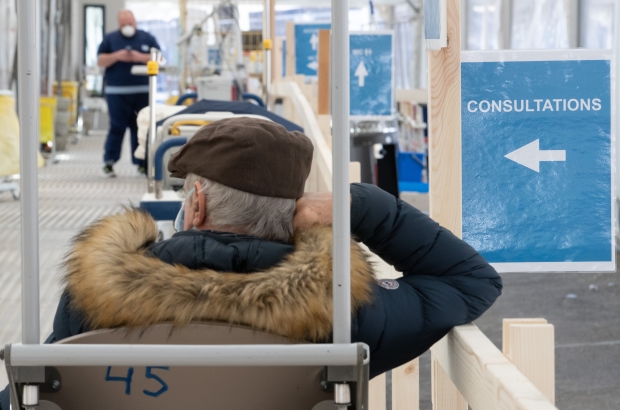- Daily & Weekly newsletters
- Buy & download The Bulletin
- Comment on our articles
New Belgian association set up for people suffering from long Covid
A new association has created a website to provide support for thousands of people in Belgium suffering from long Covid.
Long Covid refers to chronic Covid or post-Covid-19 syndrome, a multi-systemic disease, and biologist Martin Spanoghe spearheads the association’s mission in Belgium.
“We, the long Covids, are the forgotten people of the pandemic,” Spanoghe told RTBF.
“I have neurocognitive concentration problems. We know that the cause is linked to inflammation of the neurons. It's impossible for me to go back to work, even though that's what I really want to do. On top of that, I can't sleep, I have insomnia and so I'm very tired.”
It took months for Spanoghe to be diagnosed with long Covid after first being misdiagnosed with burnout. After several bouts of prostatitis, it was Spanoghe's urologist who pointed him in the direction of long Covid.
“It's a long, debilitating and disabling disease that causes a lot of suffering,” Spanoghe said.
“Because we don't feel heard by the medical profession, politicians or the media, we set up this association. At the outset, there was a Facebook group with 3,000 members. We exchanged information, but because it was so lively, it was sometimes difficult to find information. So we created the 'Long Covid Belgium' website.”
Scientific research into long Covid is making slow progress, even though the disease is considered a public health problem and recognised by the World Health Organisation.
“After specific tests carried out by a specialist and by KU Leuven, I was diagnosed with long Covid thanks to tools that allow us to see that the brain is no longer functioning properly,” Spanoghe said.
“What's very hard for us is that over 50% of general practitioners don't believe in the disease, and rely solely on the psychosomatic aspects. There aren’t enough doctors to help us.”
The 'Long Covid Belgium' website contains vital scientific information, including updates on the latest findings in the field of long Covid in Belgium.
Members of the association are campaigning for the aetiology of the disease to be established to increase understanding of its causes and how it works, and so that the medical profession can develop precision medicine.
Another aim of the Long Covid Belgium association is to create a multidisciplinary network bringing together doctors, researchers and patients, who have valuable first-hand information.
“The medical machine is not at all in tune with this new disease,” Spanoghe said. “There needs to be a reform. I can count on the fingers of my hand the doctors who are interested.”
Tatiana Besse-Hammer (CHU Brugmann) is one of those doctors. Besse-Hammer leads a clinical research unit and said that around 30% of people who have been affected by coronavirus have developed long Covid four to 12 weeks later.
“Astonishing symptoms appear – people can no longer lead a normal life, and then it develops into post-viral chronic fatigue syndrome, followed by peripheral neurological damage over the long term,” Besse-Hammer said.
“Some people can't even walk. I've had some incredible cases, for example, people who could no longer drive their car or people who worked in the restaurant trade who could no longer follow a recipe.”
Besse-Hammer said that the Brugmann University Hospital cannot keep up.
“We no longer have the staff needed to meet patients' expectations,” Besse-Hammer said.
“There are patients who were seen a long time ago and who are asking for continuity of care, and then there are those who turn up today and need to be seen. Given the hospitals' policy of reducing the number of nursing staff, this is becoming really difficult.”
One of the tasks of staff at the Brugmann University Hospital is to inform GPs about the symptoms and treatments available, so that they can take charge of the patients themselves.
“At the moment, there is no specific treatment for people suffering from the disease – that’s quite clear,” said Besse-Hammer.
“As far as knowledge is concerned, we know that people affected by Covid in March 2020 subsequently developed severe cerebral encephalopathy, and these patients have still not recovered. The infections that occurred afterwards are much less aggressive at the neurological level.”

















